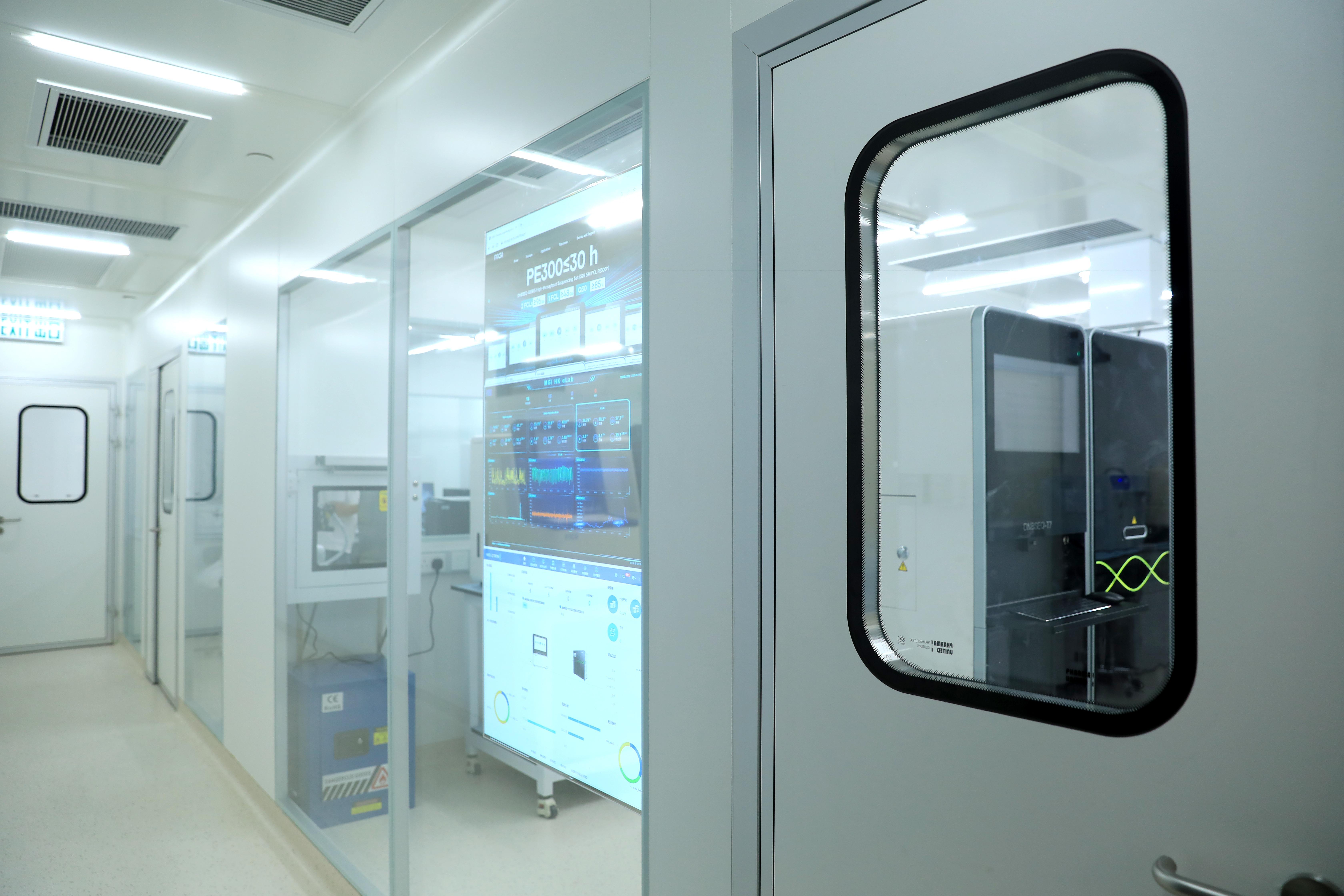 A view of inside the new αLab, which is set up by Shenzhen-based biotech company MGI Tech, at the Hong Kong Science and Technology Parks, Hong Kong, Sept 15, 2023. (PHOTO PROVIDED TO CHINA DAILY)
A view of inside the new αLab, which is set up by Shenzhen-based biotech company MGI Tech, at the Hong Kong Science and Technology Parks, Hong Kong, Sept 15, 2023. (PHOTO PROVIDED TO CHINA DAILY)
Shenzhen-based biotech company MGI Tech unveiled a new αLab at Hong Kong Science and Technology Parks on Friday. Integrating artificial intelligence research and development, application transformation, and an incubation platform, the laboratory aims to empower the development of the life sciences industry in Hong Kong and strengthen global collaboration.
An essential component of the αLab is MGI’s Smart Lab, a string of cutting-edge laboratory software and hardware launched by the company last year. It can provide digital management and environmental monitoring of the research process from sample to data, with the aim of achieving holistic and self-functioning quality management through a standardized, modular, automated, information-driven, and intelligent approach.
ALSO READ: HK shows strong momentum in biotech patents
It can reduce repetitive and tedious manual work so that lab technicians can devote more time and energy to higher-value throughputs, according to MGI. The opening of αLab marks the first time MGI’s Smart Lab has been used in Hong Kong.
The new αLab incorporates diverse technologies – including data analytics, machine learning, AI, and more – into leading-edge sequencing research, driving advances in precision medicine and bringing in more opportunities for life sciences development.
Grace Lau, Head of the Institute for Translational Research at HKSTP
Duncan Yu, president of MGI, said at the opening ceremony that αLab is the first stage of MGI’s laboratory project in Hong Kong and the second stage is DCS Lab, which will be launched in the near future, focusing on DNA sequencers, cell omics, and spatial omics.
MGI launched the DCS Lab initiative in September this year with the initial plan of supporting 10 omics laboratories across the world. The DCS Lab in HKSTP will introduce MGI’s latest research equipment such as the DNBelab C-TaiM 4 single-cell platform for droplet generation, the DNBeLab C4 pocket single-cell lab, and the DNBSEQ-T20×2 ultra-high-throughput sequencer.
READ MORE: Groundbreaking biotech venture eyes early cancer detection
Yu also noted tools and platforms play a crucial role in the development of life sciences and technology and he hopes MGI can provide more advanced and intelligent apparatus for the industry’s growth in the Greater Bay Area.
Grace Lau, head of the Institute for Translational Research at Hong Kong Science and Technology Parks Corp, said, “The new αLab incorporates diverse technologies – including data analytics, machine learning, AI, and more – into leading-edge sequencing research, driving advances in precision medicine and bringing in more opportunities for life sciences development."
ALSO READ: HK Science Park opens first branch at Hetao sci-tech zone
In addition, she expects the new lab will help attract more biotech talents to HKSTP.
The new αLab will also be home to MGI’s first artificial intelligence laboratory in Hong Kong which serves as the company's R&D center for AI technology and applications.
There are more than 250 biotechnology‑related companies in Hong Kong. HKSTP is a major promoter in the arena as it has identified biomedical technology as one of its five key technology clusters. As of June 2022, more than 160 biomedical technology companies and startups had established their R&D hubs at HKSTP.


